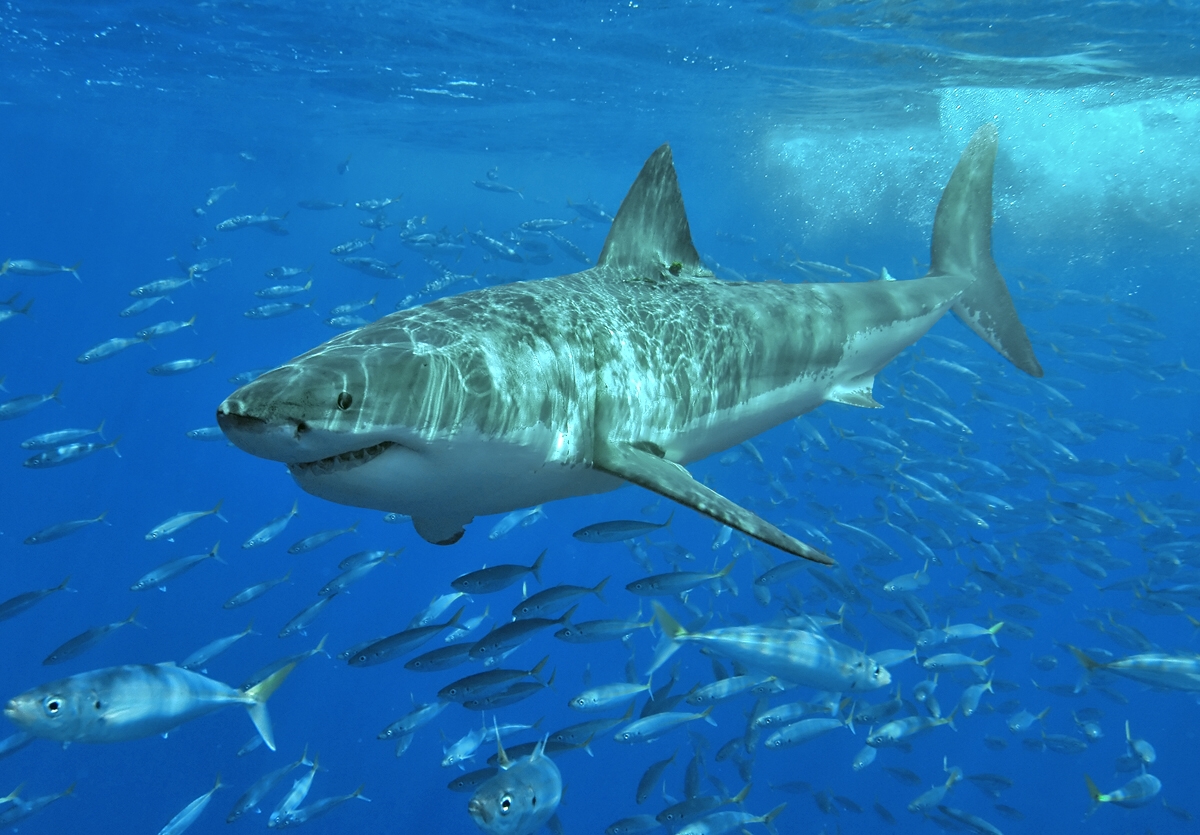Shark research organization OCEARCH is at the forefront of a conservation revolution, and its origins are about as unorthodox as its open-source, social media-driven approach to conservation. We caught up with OCEARCH Founding Chairman and Expedition Leader Chris Fischer to learn more about how his organization is redefining wildlife conservation in the 21st century.
Fischer has always been passionate about the ocean. As a child in Kentucky, he grew to be an enthusiastic recreational fisher, “chasing fish and frogs” and loving the water, as he explained during a recent interview in the National Aquarium in Baltimore, Maryland.
In the early 2000s, Fischer was able to parlay his love for everything ocean-related into an Emmy award-winning television career. For 180 episodes, Fischer hosted “Offshore Adventures”, a weekend ESPN show in which he practiced sustainable catch-and-release fishing, always keeping one fish to teach his audience how to prepare a meal.
After his show took off, Fischer was appointed to the board of the Billfish Foundation, a nonprofit organization dedicated to conserving billfish populations around the world. As he became more involved in marine wildlife conservation efforts, Fischer had an interesting realization: “The full-time people on the water, the captains and the mates, oftentimes knew more about what was going on with specific types of fish than the PhDs did.”
In an attempt to bridge that chasm, Fischer made a habit of inviting marine biologists out on shoot with him. During breaks in filming, biologists had the opportunity to tag, measure and observe the animals that Fischer and his crew would catch (and ultimately release), “bringing the practical and the academic together,” he said.
During a shoot in 2007, however, one researcher gave Fischer a frightening reality check: “While we were helping these scientists, one of them looked at me and said, ‘Man, if we lose our giant sharks, we’re not gonna have any billfish or tuna or anything else because they’re the balance keepers and we don’t know enough about their lives to create their future. They’re just too big to catch.'”
The harrowing revelation spurred Fischer into action.
“We basically committed our lives at that point to try to build an enterprise, to travel around the world and enable the leading scientists to study giant sharks — for the first time in their careers, to get their hands on live, mature specimens, to try to leverage the latest technology to save their lives.”
Fischer and his wife spent their life savings to purchase a decommissioned Bering Sea crabbing vessel outfitted with a powerful lift that enables researchers to tag and observe large marine animals. Thus, OCEARCH was born.
Since OCEARCH’s inception in 2007, the organization has been blazing a new trail in the research world. All of the data that OCEARCH collects is open-source, allowing researchers to transcend institutional affiliations and get important information to the best and the brightest minds in the scientific community. In less than a decade, more than 50 researchers from 20 institutions have collaborated with OCEARCH, tagging more than 200 animals over 22 expeditions.
In exchange for an invitation to accompany OCEARCH on one of its three annual expeditions, Fischer asks for one thing in return: a published academic paper. To date, OCEARCH expeditions have spawned six peer-reviewed academic papers, with nearly 50 more in the works. “There’s a tidal wave of white shark science coming,” Fischer teases.
OCEARCH also leverages its wealth of open-source data to engage the public. The organization maintains a wildly popular shark tracker and companion mobile app, which allow shark fans to watch in real time as dozens of tagged sharks traverse the world’s oceans.
Several of the sharks have social media accounts, which boast a combined following of over 100,000 impassioned fans. The tweeting sharks are masters of audience engagement, sharing their opinions not only on matters of marine conservation but also sounding off on pop culture, politics and current events, each with a unique perspective:
“Mary Lee is a big, massive, mature female. I think about Mary Lee and I think about a very regal, but witty, elderly woman — a classy lady, but funny.
“Then, you look at Katharine — Katharine’s more of a whimsical hippy, gypsy shark who’s maybe in her late teens, early twenties, not quite sexually mature, but right on the cusp of it. She’s not quite as sophisticated, but really whimsical.”
For those too young to follow along on social media, the data sourced from the shark tracker has been masterfully integrated into a STEM education program that is used in classrooms around the world. Elementary and middle school students are able to follow the sharks as they journey through the oceans, all while studying math, physics, oceanography and geography.
OCEARCH’s inclusive, all-encompassing approach to audience engagement works — the organization boasts a cumulative following of nearly 7 billion across digital platforms and media placements.
In short, OCEARCH makes it nearly impossible not to care about its research. “You’ve got exploration in the now, science in the now and education in the now. And we know everybody lives in the now now,” Fisher says. “When people feel included, they’re inspired.”
This article originally appeared on SharkWeek.com on July 11, 2015 || Photo: Terry Gross/CC BY 2.5
